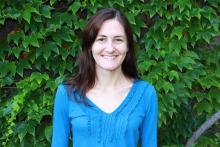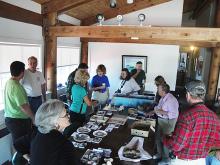New Deadline for ADBC Program
Hi, all. As you know, with the government shutdown, the deadline for ADBC was in question. The program officers were allowed to grant five day extensions only, because of the contingency clause in the Grant Proposal Guide, but the official NSF decision about length of time to extend the deadline depended upon many factors, including assessing all the upcoming deadlines, the number of proposals anticipated for those programs, and dates when the missed deadlines could be accommodated. That analysis is now completed, and the ADBC deadline will be November 13, 2013.
PLEASE CHECK THE NSF WEB SITE FOR FURTHER INFORMATION AND FAQs (http://www.nsf.gov/bfa/dias/policy/postshutdown.jsp).
We thank you for your patience and encourage you to submit proposals as soon as they are ready, since more proposals will now be coming into the system. Obviously this delay in the deadline will also delay the review process and we do not know what twists and turns are ahead. We appreciate the support of the community in these efforts.
Dr. Judith E. Skog
Directorate for Biological Sciences
Office of the Assistant Director
NSF, 4201 Wilson Blvd
Arlington, VA 22230
e-mail: jskog@nsf.gov
Phone: 703-292-7909






